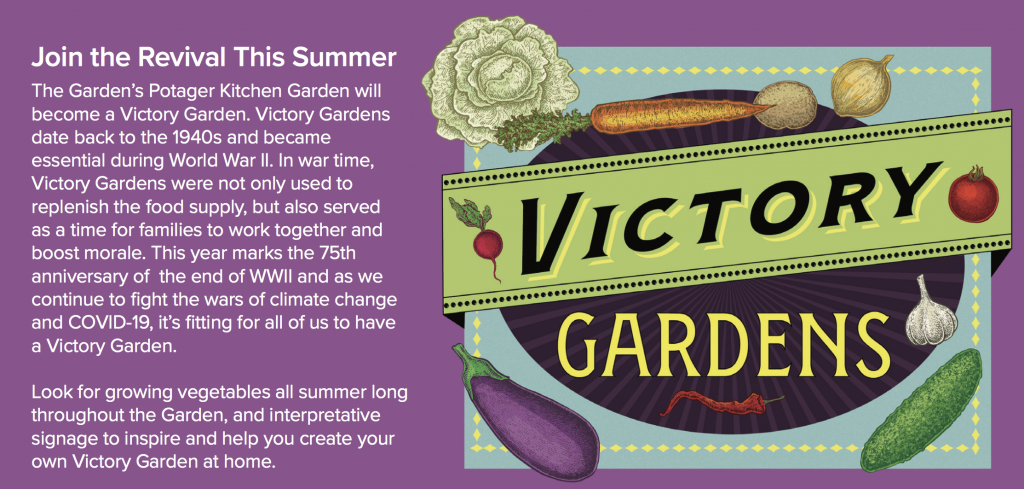
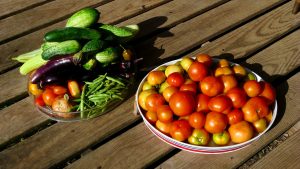
Start your own Victory Garden:
Summer Vegetable Gardening in June
Even though it’s the beginning of June in coastal Virginia, it’s not too late to get your veggie garden going for the season. All the summer favorites: tomatoes, cucumbers, peppers, beans, okra, squash, and zucchini can either be planted from seed (direct sow) or with plugs purchased from your favorite garden retailer.
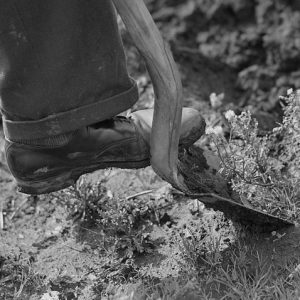
Vital to Victory – Victory Gardens
Introduced in the United States during World War I, the National War Garden Commission developed a “war garden” aid program that called on Americans to assist with large-scale food production to export to their war-torn allies in Europe. Propaganda posters and pamphlets were widely dispersed to encourage participation in these gardening programs, and even included information on canning and drying surplus produce to ensure nothing went to waste stateside and abroad. By the end of the war in 1918, the United States had shipped millions of tons of food to Europe.
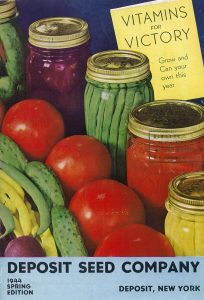
Victory Gardens: food for defense
Victory gardens were born out of uncertainty and fear of the war. Citizens were encouraged to become more self-sufficient. Victory gardens were well-tended, productive vegetable gardens that would help offset the food demands of the military and the Lend-Lease program. Gardens were established in any arable soil like lawns, flower gardens, public parks, backyards, vacant lots and schools. There was some reluctance to engage in urban gardening because it was assumed city dwellers were not skilled gardeners and city sites could not support vegetable growth. That proved untrue and led to many cities producing mass amounts of crops.
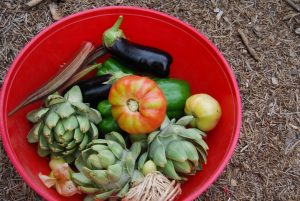
PERMANENT AGRICULTURE: A HOLISTIC APPROACH TO SUSTAINABLE FARM-GARDENING
Permaculture, which comes from the union of “permanent” and “agriculture,” is a systems approach to agriculture aimed at mimicking the stability of ecosystems to produce inherently sustainable production. Often based on observations and principles of natural processes, permaculture aims to incorporate these processes in a sustainable farm garden environment. It’s a design philosophy akin to the Daoist principle wu wei, or more commonly in the Western tongue, “work smarter, not harder.” Here, harder doesn’t solely pertain to labor, but rather the microcosm of natural processes that we find in our particular gardening situations—work with nature, not against it.

